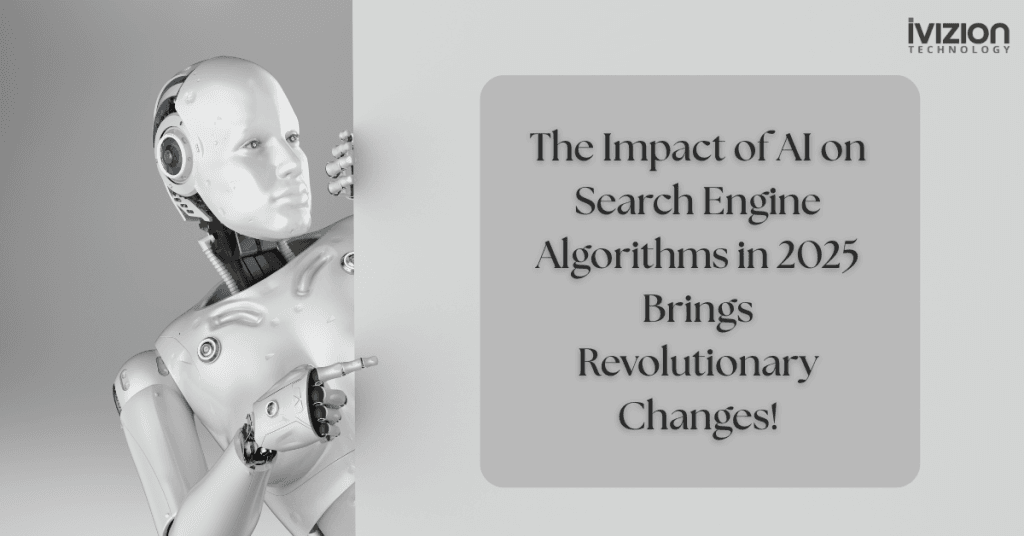Have you noticed how search results are changing these days? Honestly, it’s kind of hard to keep up. The impact of AI on search engine algorithms is huge in 2025. It’s not just about keywords anymore. AI is actually figuring out what people mean, what they like, and sometimes even what they might search for next.
If you’re studying or working in marketing, especially in a digital marketing institute in Nagpur, this is something you really need to pay attention to. But it’s also kind of tricky to wrap your head around. Let’s dive in together.
How AI is Changing Search Engines

AI isn’t just behind the curtain anymore—it’s front and center.
- Understanding what you really mean: Search engines now try to understand intent. If you type “best budget smartphones 2025,” AI knows you want comparisons, prices, and maybe some reviews. It’s not just random lists.
- Context matters more than keywords: Back in the day, you stuffed keywords and hoped for the best. Now, AI actually reads your content like a person would. It’s like your content has to “make sense.”
- Search results that change constantly: AI can adjust results in real time. So your page might show up differently for different people. It’s kind of weird but also cool.
Honestly, it’s exciting but also slightly scary. If your content isn’t keeping up, you might not even notice that your traffic is dropping.
Machine Learning and SEO
Machine learning is part of AI, and it’s a game-changer. Here’s why:
- Personalized results: Two people searching for the same thing might see completely different pages. AI remembers past behavior.
- Catching spam: Low-quality content? AI will probably catch it faster than humans. So, the old tricks don’t work anymore.
- Predicting trends: AI can actually spot trends before they blow up. Marketers who know this can ride the wave and rank faster.
If you’re at a digital marketing institute in Nagpur, check if they teach AI-driven SEO. Honestly, playing around with these tools is a big advantage.
Content Strategy in the AI Era
Content is still king—but in a different way now.
- Quality beats quantity: A short blog post? Might not cut it. AI favors detailed, helpful content.
- User engagement matters: Time on page, clicks, scroll depth—AI looks at all of it.
- Semantic SEO: Instead of just keywords, write naturally. Answer questions people actually ask. Structure your content clearly. AI notices that.
You can’t fake it anymore. If your content doesn’t add value, AI knows.
Technical SEO Gets Smarter
Even if your writing is perfect, tech issues can hurt you.
- Speed matters: Slow sites are a problem. AI tracks user behavior closely, and people leave fast.
- Mobile-first: Your site has to work on phones. Simple as that.
- Structured data helps: Adding schema can help AI understand your pages better. That means better chances in search results.
Technical SEO isn’t just about guessing anymore. AI gives clear feedback if things aren’t right.
Local SEO in 2025
If you’re running a business locally or even teaching at a digital marketing institute in Nagpur, AI changes the game.
- Voice search is growing: People ask questions out loud to assistants. Your content should match that style.
- Better map rankings: AI considers behavior, reviews, and location. Old-school tactics aren’t enough.
- Hyperlocal targeting: Results can focus on specific neighborhoods, not just cities. That’s precise but also competitive.
It’s impressive, but also makes you realize you can’t slack on local SEO anymore.
The Future: Predictive AI
Honestly, some of this feels straight out of a sci-fi movie.
- Content forecasting: AI can suggest topics before they become popular. Imagine writing a post on something before anyone even thought of it.
- Predicting user behavior: AI might show results based on what it thinks you’ll search next. Creepy? Maybe. Helpful? Definitely.
- Automatic optimization: Some platforms might tweak your titles, headings, and descriptions automatically for better ranking.
The point is, learning AI tools isn’t optional anymore if you care about SEO.

Practical Tips to Keep Up
Here’s what actually helps:
- Audit your site for AI-friendliness.
- Focus on long, structured, useful content.
- Track user engagement, not just rankings.
- Learn AI SEO tools. Playing with them makes a big difference.
- If you’re serious, check courses at a digital marketing institute in Nagpur. Hands-on experience beats theory.
Even small changes can have a big impact when AI is reading your site carefully.
FAQs About AI in Search Engine Algorithms
1. What is the impact of AI on search engine algorithms?
AI makes search engines smarter. It understands user intent, content quality, and context. This changes how pages rank and how personalized results are.
2. How does AI affect digital marketing strategies?
Marketing now relies on data-driven insights, predictive analysis, and AI tools. It’s less about guessing what will work and more about seeing what AI predicts will work.
3. Can I learn AI-driven SEO at a digital marketing institute in Nagpur?
Yes. Many institutes now teach AI SEO tools, content optimization, and analytics to keep marketers updated.
4. Does AI make traditional SEO useless?
Not at all. Basic SEO—good structure, quality content, backlinks—still matters. AI just makes old tricks less effective.
5. How does AI improve local search results?
AI uses behavior patterns, location, and user reviews to serve better local results. Optimizing for voice search and local queries is key.
My Take
Honestly, the impact of AI in search engine algorithms is huge, and it’s only going to grow.
It’s changing how marketers write, optimize, and even think. If you’re learning or working in digital marketing, staying ahead means adapting quickly.
Focus on giving value, engaging users, and keeping your site technically solid. AI rewards that. Shortcuts won’t work.
If you’re in Nagpur or anywhere else, taking a course at a digital marketing institute in Nagpur could really help. Hands-on experience with AI tools makes a big difference.
It’s a lot to take in, but it’s also exciting. The tools are smarter, but so can you. Start experimenting, learn the trends, and keep improving.




